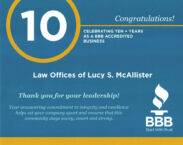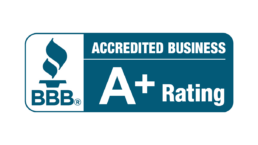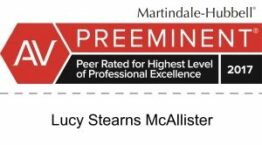California DUI School is a program of alcohol education and prevention ordered by courts and/or the California DMV. A driver must enroll in California DUI school if convicted of a DUI or “wet” driving offense such as:
- Vehicle Code 23152(a), driving under the influence,
- Vehicle Code 23152(b), driving with a BAC of .08% or higher,
- Vehicle Code 23140, underage DUI (BAC of .05% or higher), or
- Vehicle Code 23103.5, “wet reckless.”
DUI education program providers must be licensed by the State of California. There are nearly 500 state-licensed DUI programs in California, administered by over 250 service providers. Licensed providers conduct only in-person programs.
Online DUI classes offered via the internet DO NOT meet California’s DUI Program requirements. But during COVID-19, the Department of Health Care Services (DHCS) is allowing certain licensed providers to operate via telehealth. Contact the DHCS for more information at (877) 280-9944.
Most of these DUI school programs will not allow a driver to enroll unless the driver has either:
- An order from the court, or
- A license suspension notice from the California DMV.
How long is California DUI school? How much does it cost?
The required length and likely cost of a driver alcohol/drug education program depend on the driver’s specific DUI offense. The following table summarizes the length and cost of California DUI school for various types of offenses:
| Type of Offense /
Approx. DUI school cost |
Length /
(Max no. missed classes) |
| Under-21 first offender
$270 |
12 hours
(2) |
| “Wet reckless”
$270 |
12 hours
(2) |
| First DUI, BAC < .20
$843 |
3 mos. (30 hrs.)
(5) |
| First DUI, BAC ≥ .20
$1,850 |
9 mos. (60 hrs.)
(7) |
| Repeat wet reckless offender
$1,850 |
9 mos. (60 hrs.)
(7) |
| Repeat offender DUI
$1,900-$2,600 |
18 mos.
(10) |
| Repeat offender DUI, BAC ≥ .20
$3,000 |
30 mos.
(15) |
| Repeat DUI, ≥ 2 priors
$3,000 (some counties only) |
30 mos.
(15) |
Below, our California DUI defense lawyers answer the following frequently asked questions about California DUI school:
How long does DUI school take?
Drivers must attend DUI school regardless of whether they were convicted of, or pled guilty or “nolo contendere” (no contest) to:
- VC 23152(a) driving under the influence,
- VC 23152(b) driving with a BAC of 0.08% or greater,
- VC 23103 via VC 23103.5 “wet reckless” (a commonly negotiated plea bargain from DUI charges), or
- Any other California DUI offense.
Below is a brief description of the California DUI programs for various kinds of DUI offenses.
The twelve-hour DUI school for a “wet reckless” plea bargain
People convicted of a first-time California “wet reckless” offense must complete a twelve-hour DUI program. These are sometimes referred to as SB 1176 programs.
A driver cannot be arrested for a wet reckless violation. Wet reckless is a reduced offense that results from a DUI plea bargain in California. In essence, the driver admits to driving recklessly with some measurable amount of alcohol (the “wet” part) in his/her blood.3
The twelve-hour DUI school program for “wet reckless” defendants consists of six weekly two-hour classes.
The twelve-hour underage drinking program
The driving-under-the-influence program for minors under 21 with a California DUI is also known as an AB 803 program. It, too, involves six weekly two-hour classes. An underage driver will be ordered to complete this 12-hour DUI class if:
- The driver is 18-20 years old, and
- It is the driver’s first DUI conviction.4
BAC below 0.20% — the three-month first-time DUI program
A driver will be required to attend a three (3)-month DUI education program if:
- It is the driver’s first DUI or “wet reckless” conviction within a ten (10)-year period, and
- The driver’s BAC was below 0.20%.5
This three-month class is the most common first-time DUI school and is sometimes referred to as an AB 541 class. It covers both people convicted of DUI of alcohol and those convicted of DUI of drugs (“DUID”).
If a driver is ordered into the three-month DUI program, attendance and completion will be conditions of the driver’s DUI probation. The three-month driving under the influence program consists of thirty (30) hours of instruction.6
Exact classes and programs vary depending on the provider of the drug/alcohol education program. But, in general, a driver can expect to attend 10-15 classes. This is usually one meeting per week, for three to four months.
The typical three-month California DUI program consists of:
- an enrollment and intake session,
- 12 hours of education sessions,
- 18 hours of group counseling, and
- 3 individual counseling sessions.
BAC 0.20% or greater or second wet reckless — the nine-month DUI program
The judge will order a drunk driving offender to attend a nine (9)-month California DUI school (an AB 1353 program) if:
- The driver is a first offender whose BAC was 0.20% or higher,
- The driver refused a chemical test after being arrested for DUI, OR
- The driver pleads guilty to a wet reckless and has another DUI or wet conviction on his record from within the previous ten (10) years.8
The typical nine-month DUI education program involves sixty (60) hours of instruction, which consist of:
- 6 two-hour education classes (which may be a combination of lecture and film),
- 22 two-hour group sessions (one every other week),
- 16 individual interviews (lasting 15 minutes each), and
- a requirement that you attend 36 Alcoholics Anonymous meetings.
The 18-month second-time DUI offender program
A second DUI conviction within 10 years of a prior DUI or wet reckless conviction will trigger an eighteen (18)- or thirty (30)-month DUI education program. The 18-month drug/alcohol school program (also known as SB38) is the one required for most second-time DUI offenders.9
A judge may also allow some third or subsequent DUI offenders to attend this 18-month DUI school in lieu of the 30-month program described below. In order to qualify for the 18-month DUI program as a third or subsequent offender, a driver must not have previously completed the 18-month program.10
According to Van Nuys DUI defense attorney John Murray:
“The 18-month DUI education program includes lectures, group discussions, and videos about California DUI laws and drug and alcohol abuse. There are also therapy sessions, in which instructors encourage drivers to identify any drug and/or alcohol problems. They may also suggest ways to change those behaviors.”
The repeat-offender 18-month DUI school also includes “community reentry monitoring.” This helps to transition the driver back into a “normal” life.
This consists of help moving away from the rigorous California DUI school requirements and into self-help programs such as Alcoholics Anonymous. During this time, the program provider may also help the participant with job placement, if necessary.
Specifically, the 18-month DUI school consists of:
- 52 hours of group counseling,
- 12 hours of alcohol/drug education,
- 6 hours of community reentry monitoring, and
- bi-weekly individual interviews during the first year of the program.11
The 30-month multiple DUI offender program
Some California counties authorize a thirty (30)-month multiple offender DUI school (SB 1365 program). If a driver lives in one of these counties, the judge must order the driver to attend this school if:
- The driver had a particularly high BAC during a second-time DUI offense, or
- The driver was convicted of — or pled guilty or no contest to — a third or subsequent DUI offense (with any BAC)
Counties offering a 30-month third and subsequent offender DUI school program are:
Offenders should check with the court, however, as this is subject to change.
When offered, the 30-month DUI education program requirements consist of:
- 78 hours of group counseling,
- 12 hours of alcohol and drug education,
- 120-300 hours of community service, and
- regular individual interviews.
Attending DUI School is a standard penalty following a DUI conviction.
How much does the program cost?
2.1. Summary of approximate DUI program costs and down payments
DUI education program costs vary by provider and location. As an example, the average costs of first-offender DUI programs in Ventura County are:
- 12-hour program (SB 1176 or AB 803): $270,
- 3-month program (AB 541): $843,
- 9-month program (AB 1353): $1,851,
- 18-month program (SB 38): $1,900-$2,600, and
- 30-month program (SB 1365): $3,000.
A down payment of around $350 is generally required to enroll in most programs.
These costs may be different in other areas and are subject to change.
2.2. What if I can’t afford my court-ordered DUI program?
Fee waivers are available for people who cannot afford their court-ordered DUI school. Defendants may request a financial assessment directly from a DUI program provider.15
Reduced fees are based on a sliding scale. If an offender qualifies for a fee waiver, the DUI education program may not:
- Deny services based solely on the offender’s financial status,
- “Waitlist” an offender or refer him/her to another provider because of inability to pay the full rate,
- Require any fees as a down payment, or
- If the offender qualifies for general assistance benefits, charge missed class fees of more than $5.00 per month, plus a $5.00 rescheduling fee and/or a $10 school reinstatement fee, if applicable.16
Participants should be prepared to provide a general assistance award letter, or other documentation of income, to their DUI school provider. The program will need to verify the participant’s income before it can assess a reduced payment schedule.17
3. How can I get to classes if my license is suspended?
A first-time adult California DUI offender whose driver’s license is suspended or revoked may be eligible for a restricted license. To be eligible, the driver must not have refused a DUI breath test or DUI blood test.
An “IID restricted license” allows the holder to drive anywhere as long as he/she has an ignition interlock device (IID) in the car.
Alternatively, a restricted license allows the holder to drive:
- To and from the driver’s place of employment,
- During the course of employment, and
- To and from DUI school.
Before it will issue any restricted license, the DMV will generally require:
- proof of enrollment in DUI school, and
- proof of financial responsibility.
Note that a driver is not eligible for this restricted license if he/she was driving a commercial vehicle at the time of the offense.20
4. How do I show the court and DMV that I am enrolled?
4.1 Proof of enrollment
During California DUI sentencing, the judge will order the defendant to show “proof of enrollment” in DUI school within 21 days. Once the defendant enrolls, the provider will typically send a proof of enrollment certificate to both the court and the DMV on the defendant’s behalf.21
4.2. Proof of completion
The judge will also order the defendant to complete DUI school by a specific date. The program provider will provide the court and the DMV with a certificate of completion when the defendant successfully completes the program.
5. What happens if I miss a class?
DUI school participants are allowed to miss a certain number of sessions. However, they must make up missed sessions before they will be issued a certificate of completion.22
If a participant exceeds the permitted number of absences, he/she will be dropped from the DUI program.
The number of classes a driver may miss before he/she will be terminated from a court-ordered DUI education program is as follows:
- 12-hour program (SB 1176 or AB 803): 2,
- 3-month program (AB 541): 5,
- 9-month program (AB 1353): 7,
- 18-month program (SB 38): 10, and
- 30-month program (SB 1365): 15.24
6. What do the classes consist of?
California DUI school includes both counseling and education. Most of the counseling will be in a group setting. But there will also be some one-on-one interviews.
The education component consists of education on California DUI laws, drug abuse and “problem” drinking. This education be given in the form of
- live lectures,
- videos, and/or
- group discussions.
Attendees are not required to participate actively in either the educational components or group counseling sessions of California DUI school. However, they must participate actively during individual interviews.
DUI school attendees must remain sober
Offenders are expected to maintain sobriety while participating in a court-ordered DUI education program. If a participant is suspected of being under the influence in class, the program may:
- require the participant to undergo a breathalyzer or other chemical screening, or
- expel the participant from the class and drop him/her from the program.
A participant can also be dropped from a California DUI school program if:
- He/she is disruptive to the class,
- He/she sleeps during class, or
- The instructor believes the participant poses a threat to the instructor or any other student(s).
7. What happens if I don’t complete the program?
7.1. Probation violations
If an offender is expelled from DUI class, he/she cannot drive under a restricted license. Driving without a license could subject the offender to a DUI probation violation.
Failure to complete a court-ordered DUI program is also a probation violation.
7.2. Bench warrants for probation violations
Upon a participant’s failure to attend DUI school, the program will inform the judge. The judge will then typically issue a California bench warrant for the offender’s arrest
After the arrest, the judge will set a DUI probation violation hearing. A probation violation subjects an offer to an additional jail or prison sentence.
In addition, the DMV will revoke any restricted license and reinstate the original license suspension or revocation.
8. What if I live out of state?
8.1. Military duty
A DUI offender who must leave for military duty may request a leave of absence from a court-ordered DUI education program.
Upon returning to California, the offender will be permitted to pick up where he/she left off. The offender will still need to complete the required DUI school in order to satisfy probation.
8.2. Out-of-state residents
If an accused driver is an out-of-state resident arrested for a California DUI –or they plan to move out of state–they still must fight the DUI court case in the county where the incident allegedly took place. If ordered to attend DUI school, the judge may let an offender a 1650 waiver to take classes in your (new) home state.
But it is important to note that the curriculum for the out-of-state DUI education program must be at least as comprehensive as California DUI school. It must also satisfy the California DMV. If it does not, it may trigger an extended driver’s license suspension in the driver’s home state.
For further help…
Lucy S. McAllister is a California DUI defense lawyer that can advise an accused driver on the best course of action. If you were charged with driving under the influence in California, we invite you to contact us for a free consultation in the office or by phone. Call us or complete the form on this page to speak to a knowledgeable California DUI lawyer in your area.
We help people throughout California












